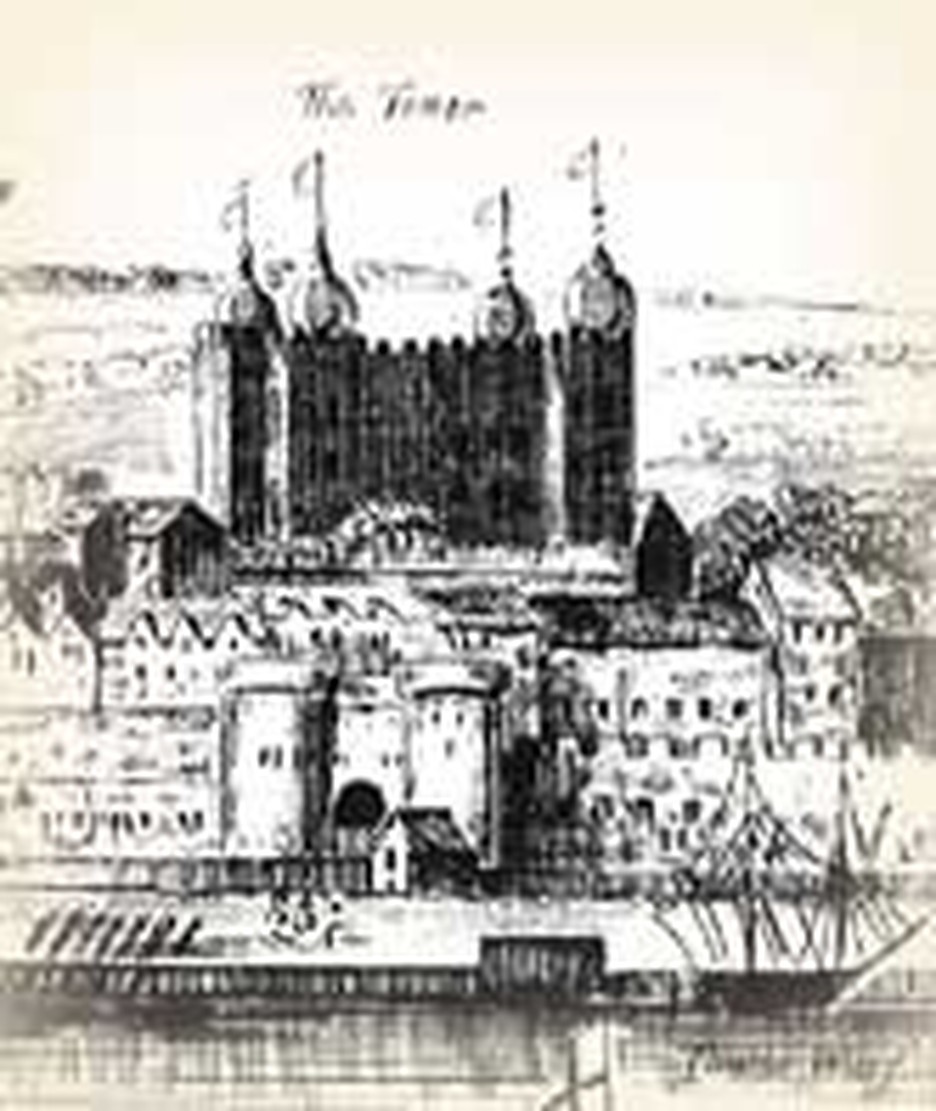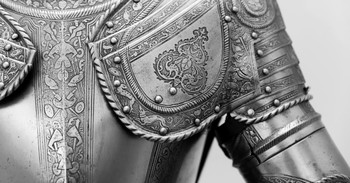
Twenty times or more, as Peter Wentworth walked near the House of Commons, he told himself that he must not give the speech he was carrying. He would surely go to prison. But every time, his conscience, fortified by scripture, replied that he must speak up. Three years ago, Queen Elizabeth I had ordered the last Parliament to keep its nose out of the affairs of the Church of England, which she headed. Parliament, largely Puritan, ignored her and took up three religious bills. The queen dissolved Parliament.
On this day, February 8, 1575, Parliament finally met again. The queen had packed the commons by restoring certain old boroughs that the crown controlled. Although Peter was elected from one of these, the Puritans no longer had a majority.
Peter saw the queen's actions as dangerous to the liberty of Parliament. As soon as the first bill was read, Peter shot to his feet. Throwing caution to the winds, he pulled out his speech and began to read it.
"Mr. Speaker, I find written in a little volume these words in effect: 'Sweet is the name of liberty, but the thing itself a value beyond all inestimable treasure.' " He urged Parliament to protect its freedom, the most precious thing in the kingdom.
He deplored the way rumors of the queen's pleasure or displeasure were used to kill bills or to push them. We all make mistakes, he reminded the other members. Even the noble queen. Frightened, Parliament silenced Peter and hustled him out. In those days kings and queens of England had much greater power than now; Parliament trembled at the royal wrath. A Parliamentary committee questioned Peter and sent him to the Tower of London. He was there for over a month and had to apologize before he was allowed back into Parliament.
For his outspoken defense of Parliament's rights and his demand that the queen settle the succession question before she died (she had no children), Peter went to prison several more times. The last time, his wife was jailed with him. When Peter died in 1596 at the age of 73, he was still in the tower. He had refused to back down or to be silenced. Although he must have seemed a failure to himself and his contemporaries, he is now recognized as a brave champion of the liberties that Parliament eventually won.
Bibliography:
- Neale, J. E. Queen Elizabeth. Garden City, New York: Doubleday, 1957.
- Stephenson, Carl and Marcham, Frederick George, eds. and trans. Sources of English Constitutional History; A Selection of Documents from A.D. 600 to the Present. New York: Harper & Row, 1937.
- "Wentworth, Peter." Dictionary of National Biography. Edited by Leslie Stephen and Sidney Lee. London: Oxford University Press, 1921-1996.
Last updated June, 2007


